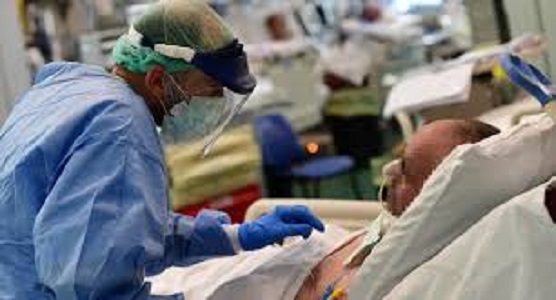Oyo to inaugurate automated silo

Oyo State Government has promised to inaugurate the first automated silo in Nigeria soon, as part of efforts to enhance the diversification of its economy through agriculture.
Gov. Abiola Ajimobi made the disclosure in Oyo during the inspection of the Oyo State Integrated Silo Complex located along Oyo-Awe road on Tuesday.
The News Agency of Nigeria (NAN) reports that the silo is a project of the “Agric-Oyo” programme inaugurated by the state government to boost agriculture in the state.
The silo with waybridge, trailer park and other modern facilities, was sited close to Owode Grain Market, one of the largest grain markets in Nigeria.
Ajimobi said the project would be completed and inaugurated in six months, adding that he was impressed at the level and quality of work at the site despite the paucity of fund.
“The four fully automated silos have 2,500 metric tonnes capacity to make 10,000 metric tonnes, and is the first of its kind in Nigeria,” he said.
He said that the silo when inaugurated would generate employment for 50,000, fortify the grain market, and save grains for many years.
Ajimobi added that the silo would also enhance efficient and effective grain management.
“We also intend to establish a Scanning Manufacturing factory for agriculture in Ogbomoso,’’ he said.
Dr Mufutau Raheem, the Projects Consultant told NAN that they have inspected all the silos nationwide as a learning curve for the Oyo Integrated Silo.
Expert calls for better post-harvest handling technologies
A non-oil export consultant, Mr Godwin Okoh, has called for improvement on post-harvest handling technologies and seed quality to develop exportation of agricultural produce.
Okoh, the Managing Director, Tech Consult and Investment Ltd., made the call in an interview with the News Agency of Nigeria (NAN) in Lagos on Tuesday.
He said that the rejection of Nigeria’s agricultural produce in the international market was due to the presence of unwanted agents in the produce.
Referring to the ban on some agricultural items from Nigeria by the European Union in 2015, he said there had been tremendous improvements in quality of Nigerian produce since then.
Okoh said that cashew and sesame which had peel-ability and Free Fatty Acid (FFA) content issues respectively were among the crops mostly challenged.
“The challenge we have been facing is in the area of post-harvest handling, which we need to improve on as well as the seedling quality.
“For instance, if you look at the cashew and sesame seeds, our customers complain about the peel-ability and the content of FFA in sesame seed.
“Now, most of our seedlings are very old and are not resistant to pests, so these are the areas we really need to improve, especially in providing hybrid seeds for tree crops.
“This will reduce investiture of those foreign agents that cause a lot of rejection in foreign markets.
“So, we need a technology that will help in post-harvest handling,’’ Okoh said.
He also said that after farmers had harvested their crops, they found it difficult to preserve in such a way that would retain the content of the produce before they were exported.
Okoh said that the African Growth and Opportunity Act (AGOA), which was introduced in May 2000 and was later reviewed for the third time from 2015 to 2025 had also contributed.
“The AGOA Act fortunately for Nigeria has been extended for another 10 years. This is according to African Trade Hub, a forum created to train exporters.
“Since then, there has been a tremendous improvement on our quality, especially the ones going to the European markets.
“With the ongoing training, we have recorded improvements, but, a lot still need to be done to sensitise farmers and exporters,’’ he said.








